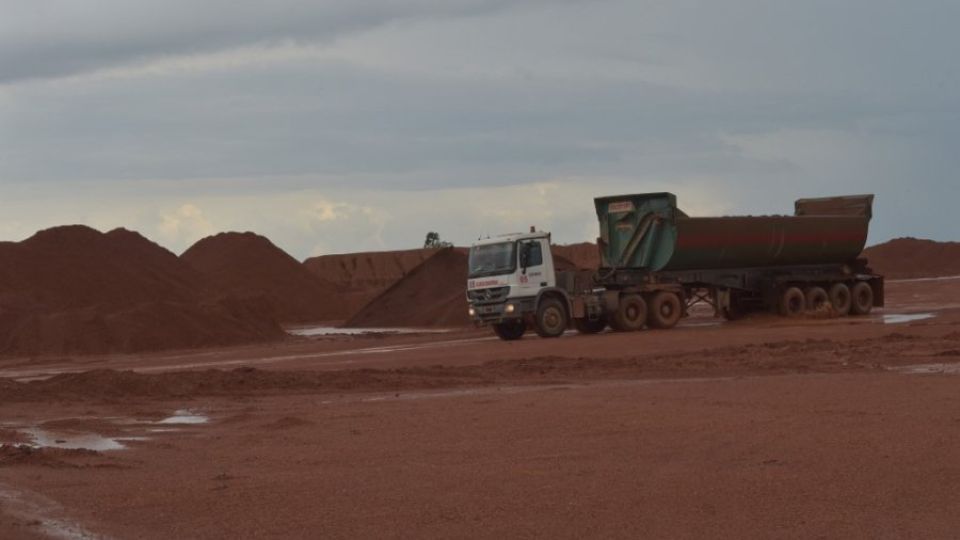June 20, 2023
JAKARTA – The government says it is ready to fight back should any countries pursue legal action against its bauxite export ban enforced earlier this month.
In a speech on Sunday, President Joko “Jokowi” Widodo acknowledged that China, which is Indonesia’s biggest bauxite importer, may file a complaint against Jakarta at the World Trade Organization (WTO).
“If anyone sues us, we’ll face it. Please, let’s not act like a small country. Indonesia is a big country. A big country shouldn’t be gutless when getting sued, don’t be ridiculous,” Jokowi was quoted as saying by CNBC Indonesia.
Speaking to the same media outlet months ago, Trade Ministry official Bara Krishna Hasibuan said there was no sign of China taking Indonesia to the WTO, but the ministry was ready for the consequences that may arise from the bauxite export ban.
“I have talked with our ambassador to the WTO, and there has not been [any talk of bringing this before the WTO],” said Bara on March 2, adding: “Bilaterally, there hasn’t been any indication pointing toward our government that China will take steps.”
He said that, in principle, the ban was not expected to disrupt broader economic relations with other countries, especially with those that relied heavily on mineral products from the archipelago.
Around 4 percent of global bauxite reserves are estimated to lie under Indonesian soil, with data from the Energy and Mineral Resources Ministry revealing that the country holds some 1.2 billion tonnes of the aluminum ore.
Mining industry analyst Ahmad Zuhdi Dwi Kusuma from state-owned lender Bank Mandiri noted that, unlike with nickel, Indonesia’s global market share was not that great, making the country “easily replaceable”.
“I think it is more rational for China to find another market than to [file a WTO complaint against] Indonesia,” Zuhdi told The Jakarta Post on Monday.
A big chunk of the national bauxite production has always been channeled to the export market, because domestic demand amounts to less than half of the current nationwide output.
Industry players have stressed that the combined capacity of existing smelters does not remotely match the mining output.
With current production levels of more than 31 million tonnes and the four operational smelters’ capacity of a mere 14 million tonnes, the ban would leave around 17 million tonnes of idle, unprocessed bauxite.
The bauxite export ban, like prohibitions on the shipment of other mineral ores, is aimed at developing domestic metal processing industries so that the country can move up the commodities value chain instead of being a raw material exporter. For bauxite, the value-added product is alumina, which is used for further processing into aluminum.
The head of the Indonesian Chamber of Commerce and Industry’s (Kadin) permanent committee on minerals and coal, Rizqi Darsono, told the Post on Monday that the government should face whatever comes its way, since the downstream agenda per se was “good”.
But, should China or another country choose to bring it up to the WTO stage, Rizqi said, those countries could retaliate, for example by putting a higher import tariff on Indonesian alumina products, rendering them uncompetitive against products from other producer countries.
“Whether or not China [pursues WTO action] does not impact the bauxite mining industry, because our government wouldn’t budge, they would choose to go ahead with this ban,” said Rizqi.
He added that, in the context of bauxite, Jakarta needed to be more careful “because, in fact, the reality on the ground is that the industry is not yet ready”.
“[The government] must offer [lenience] to companies where [smelter] building progress exceeds 50 percent,” said Rizqi.
A special advisor to the mining ministry revealed last week that eight companies were in the process of building smelters.
Ronald Sulistyanto, acting head of the Bauxite and Iron Ore Companies Association (APB3I), said building a smelter was no easy feat considering that the same ban had been imposed back in 2014, and by the time Jakarta decided to lift it in 2017, only one company had constructed a smelter.
“That shows how hard it was to get investors at the time, as the investment [needed] is pretty high, around US$1.2 billion,” Ronald told an online webinar on May 31.
On top of that, he explained, return of investment (ROI) could take a long time to materialize in bauxite processing, as seen in the case of PT Well Harvest Winning Alumina Refinery that had been operational for almost a decade, but had not yet resulted in a ROI.
Neither the Chinese Embassy in Jakarta nor the Trade Ministry responded to the Post’s inquiries on Monday.


